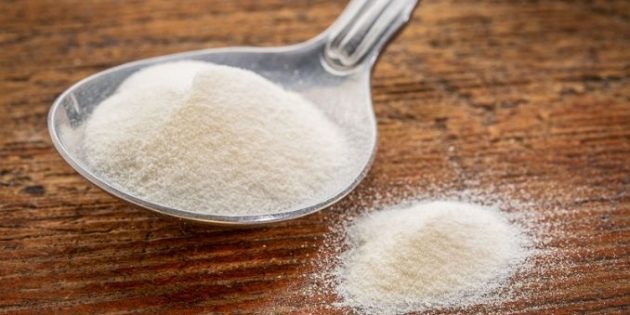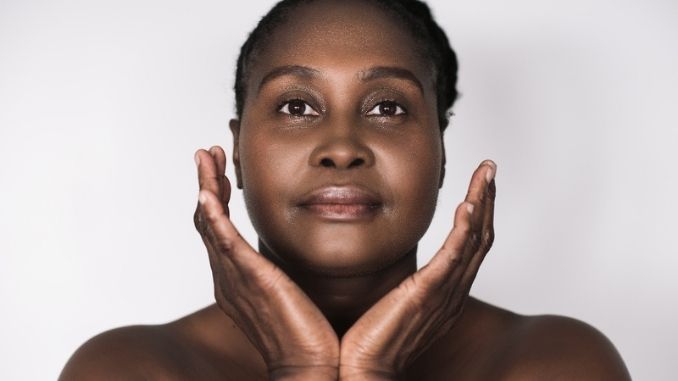Collagen is the most abundant protein in your body, accounting for approximately 1/3 of your body’s protein composition. Different types of Collagen can be found in your skin, tendons, internal organs, organic parts of the bone, cartilage, bone marrow, lymphoid tissues, membranes, hair, and the surfaces of cells.
Aging is not something you can prevent, but it is something you can prepare for. It would help if you remembered that you would experience various changes inside and outside your body. One day you may see gray hair and wrinkles as you look in the mirror, but it does not stop there. These changes can also affect your teeth, heart, and bones. It is essential to take note of these changes and take steps to boost your health regardless of age. Below are some changes you may notice:
Cardiovascular System
Hypertension (Increased risk of High Blood Pressure) and other cardiovascular problems are prevalent due to the stiffening of blood vessels and arteries. When they are stiff, your heart will need to work harder to pump blood through.
Digestive System
Constipation can be attributed to age-related large intestine structural changes. This is sometimes due to a lack of exercise, fluid intake, or a low-fiber diet. It would help if you also were mindful of the medications you take. Diuretics and iron supplements may lead to constipation.
Bladder and Urinary Tract
Urinary incontinence may become familiar as your bladder’s elasticity decreases, causing you to urinate frequently. Men may suffer from an inflamed or enlarged prostate, which causes incontinence and difficulty emptying the bladder. Bladder muscles and pelvic floor muscle weakness makes complete bladder emptying more challenging. Being overweight, nerve damage from diabetes, some medications, and alcohol or caffeine intake can be a factor too.
Brain Function
Aging does put your brain through changes, but these changes should have little effect on your memory and thinking skills. Even healthy older adults may struggle to remember familiar names or words or find multitasking too challenging. See your doctor immediately if you are experiencing memory loss and other symptoms.
Eyes and Ears
Some expected changes include the inability to focus on objects up close, sensitivity to glare, and the inability to adjust to different light levels. These changes can be due to your eye’s lens, especially if you suffer from cataracts. Decreased hearing, unable to hear well in crowded places, and difficulty hearing specific frequencies can also be typical.
Teeth
Medications for treating allergies, asthma, high blood pressure, and high cholesterol may lead to dry mouth, making you susceptible to decay and infection.
Skin
As you age, your skin becomes thinner as the fatty tissue below it is thinner. Your skin then becomes less elastic. As a result, you can bruise more easily and suffer from dry skin. You will notice wrinkles, age spots, and skin tags (small growths on your skin).
Weight
Eating healthy and staying as active as possible play a significant role in maintaining a healthy weight. Your metabolism slows down, and the reduced daily calories can significantly affect your weight. With decreased activity and the same amount of food intake, it is inevitable for you to gain weight.
Sex
Sexual needs and performance change as you age. You may be suffering from a medical condition or be taking a medication that hampers your ability to enjoy sex. Vaginal dryness for women and impotence for men can make sexual activities uncomfortable and unenjoyable.
Bones and Joints
As you age, your bones become less dense. Many people have osteoporosis, causing bones to weaken and often break. Your body may no longer absorb enough calcium from food. A decrease in Vitamin D levels also affects your body’s ability to use calcium. The cartilage that lines the joints becomes thin due to wear and tear, eventually leading to osteoarthritis. Ligaments and tendons become less elastic, which makes them tear more easily and heal more slowly when torn.

When you are younger, your body produces Collagen naturally, but as you age, this production declines. Wrinkling skin, decreased muscle strength, and weak joints are some of the visible signs of aging. Taking in more Collagen has been shown to support the decreasing production of Collagen due to aging. Below we have shared some of the ways Collagen can benefit you.
Bones and Joints
Collagen supplementation may have a therapeutic effect on osteoarthritis and osteoporosis. Some studies have shown that increased consumption of Collagen has a positive therapeutic effect on osteoporosis, osteoarthritis, and joint pain. Women with an average age of 63 showed a favorable shift in bone markers, indicating increased bone formation and reduced bone degradation through collagen supplementation.
Muscle Strength
Having Collagen in your diet may lead to an increase in muscle strength and endurance. Those who took a collagen supplement and completed resistance training (three days a week for 12 weeks) had a more pronounced improvement in body composition compared to those who didn’t supplement. The collagen supplementation group saw an increase in muscle mass and strength and a decrease in fat mass.
Skin
As you age, your collagen production decreases and wrinkles start to show. Studies have shown consuming Collagen in natural or supplementary form can decrease skin aging, improve skin elasticity, reduce wrinkles, and help to keep your skin hydrated. Collagen consumption may not turn back the hands of time, but it can certainly boost your skin health. It can help with maintaining a smooth and silky complexion.
Sleep
Collagen is rich in the protein glycine. Glycine is an inhibitory neurotransmitter that has been linked to improvements in sleep. It may help to take glycine before sleeping to improve sleep quality.
How to Consume More Collagen
Often seniors have restricted diets due to medical conditions, while others avoid consuming specific foods due to allergies or intolerances. There are different nutritional sources of Collagen that you may want to consider, but for many, supplementation is beneficial.
Gelatin is made from animal Collagen, a protein that makes up connective tissues, such as skin, tendons, ligaments, and bones. Collagen can be consumed from bonier cuts of meat, bone broth, soups, chicken meat, fish, and shellfish. Some other foods help support collagen production, such as citrus fruits, berries, tropical fruits, garlic, greens, cashews, and refined sugar carbs.
Collagen supplements can be found in both powder and capsule form. There are no specific guidelines on how much Collagen you should take. It will depend on the type of Collagen and your intended purpose. Generally, for improved skin and hair health, 2.5-10 grams of collagen peptides can be taken orally daily for 8-12 weeks. For arthritis, 10 grams of collagen peptides can be taken daily in 1-2 divided doses for about five months.
Note that nothing beats a healthy, balanced diet to help your body produce Collagen, but collagen supplementation may be an option. Taking collagen supplements as a healthcare professional directs is generally safe for healthy individuals. Most people won’t experience adverse side effects. If you are taking other supplements or medications or have any other medical conditions, it is best to talk to your doctor before taking any supplement.
Start your journey towards better skin, nails, hair, and overall health. Learn more about Collagen here.













